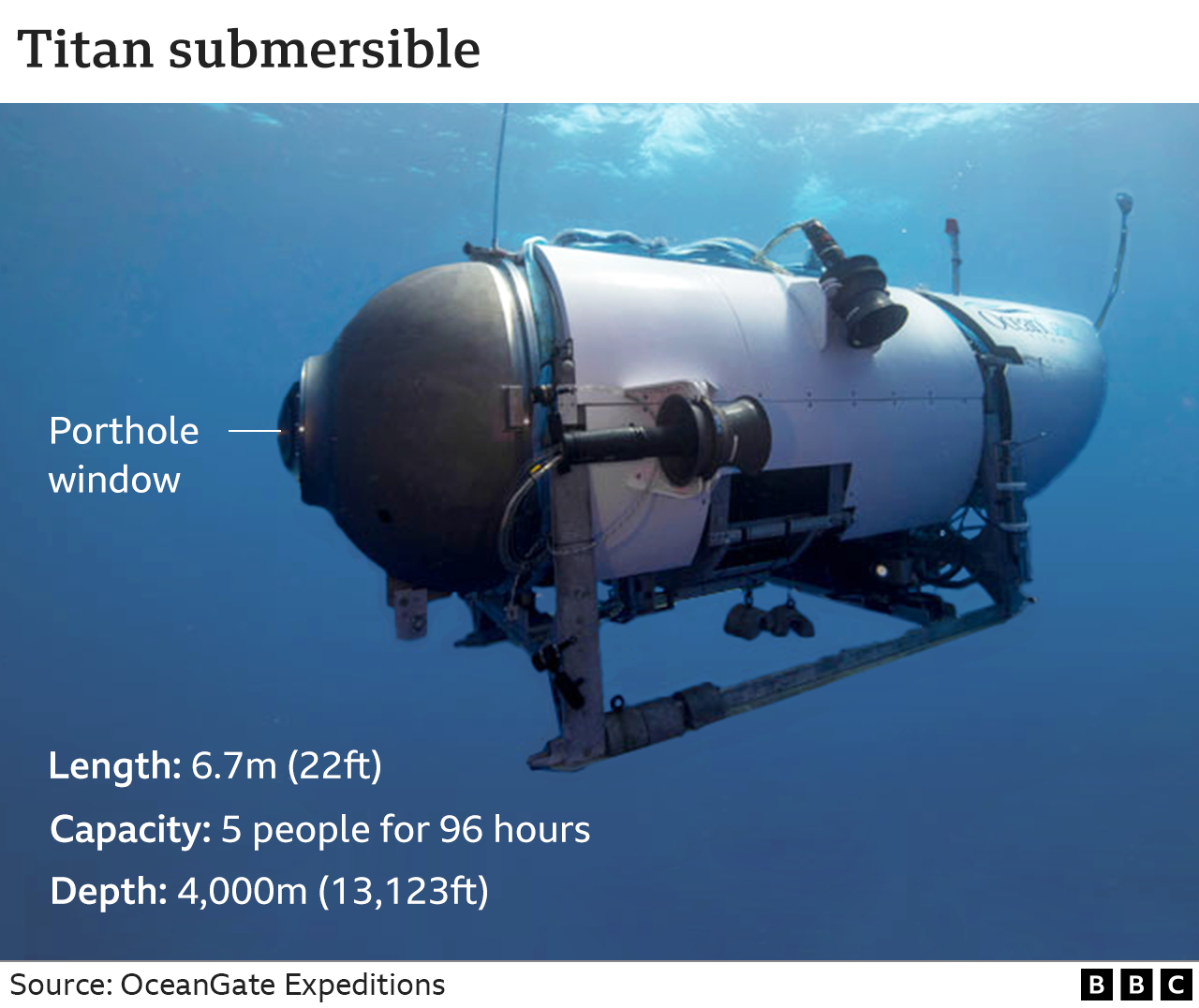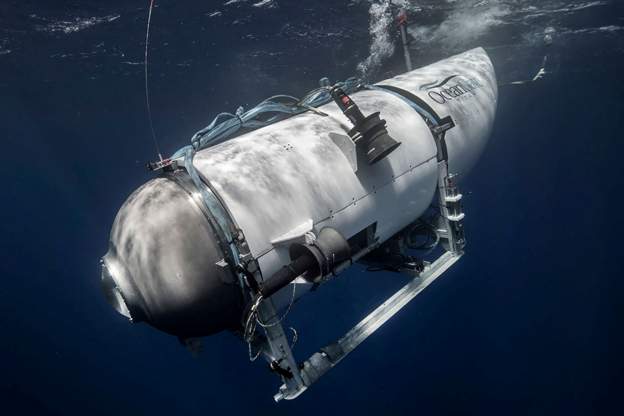It is a claustrophobic, terrifying prospect - being trapped in a 22ft submersible, potentially thousands of feet underwater, with oxygen running out.
The exact whereabouts of the Titanic submersible and the condition of the five crew onboard are unknown. It is thought the vessel may have less than 10 hours of oxygen remaining, creating a race against time to find the sub before it is too late.
As Dr Ken Ledez, a hyperbaric medicine expert at Memorial University in St John's, Newfoundland, has told BBC News that running out of air is not the only danger those on board face.
The vessel may have lost electrical power, which is likely to have a role in controlling the amount of oxygen and carbon dioxide inside the vessel.
As the oxygen level falls, the proportion of carbon dioxide being breathed out by the crew will be rising, with potentially fatal consequences.
"As levels of carbon dioxide build up, then it becomes sedative, it becomes like an anaesthetic gas, and you will go to sleep."
Too much of the gas in a person's bloodstream, known as hypercapnia, can kill them if not treated.
Former Royal Navy submarine captain Ryan Ramsey says he looked at videos online of the inside of Titan and could not see a carbon dioxide removal system, known as scrubbers.
"That for me is the greatest problem of all of them," he says.
At the same time, the crew are at risk from hypothermia, where the body gets too cold.
According to Capt Ramsey, if the sub is on the seabed, the water temperature will be about 0C. If it has also lost electricity, it will not be generating any power and therefore cannot generate heat.
Hypothermia, the lack of oxygen and the build-up of carbon dioxide within the sub mean the crew's ability to make contact with the search and rescue mission, such as by banging on the hull at regular intervals to try and attract attention, will dwindle.
"If they're unconscious, they're not going to be able to do much to help themselves," says Dr Ledez.

While the Coast Guard has warned there is probably little oxygen left, the crew may be able to conserve their supplies - at least for a while.
Mr Ramsey says slowing their breathing would also help but admits this could be difficult considering the stress they would be under.
Dr Ledez says they could also spread out carbon dioxide-absorbing granules or reduce their power use if they still have electricity.
Despite all these challenges, he urges against cancelling the search-and-rescue operation too soon, saying they might be able to survive even when oxygen levels are very low.
"If anybody can survive in it, you know, it's these individuals," says Dr Ledez. "It just depends on them having power and depends on them having light to be able to find things and make these controls, but absolutely, they could still be alive."
Latest Stories
-
NPP to open 2028 flagbearer nominations on July 29
28 minutes -
NDC opens nominations for Akwatia parliamentary primaries on July 28
2 hours -
Guinness Ghana DJ Awards opened new doors for my career – DJ Pho
2 hours -
Mohammed Sukparu commits to advancing Ghana’s Artificial Intelligence agenda
2 hours -
‘What is coding?’ – Question raises eyebrows during Deputy Communication Minister-nominee’s hearing
3 hours -
WAFCON 2024: Ghana’s Black Queens claim third-place after penalty win over South Africa
3 hours -
Ghana celebrates 100-year-old WWII veteran Joseph Ashitey Hammond
3 hours -
Measures announced in Mid-Year Budget Review fully in line with programme objectives – IMF
3 hours -
This Saturday on Newsfile: AG drops charges in uniBank trial, Aud-General’s report, and Mid-Year Budget Review
4 hours -
Parliament passes Road Maintenance Trust Fund Bill
4 hours -
Heavy security deployed at Manhyia Palace following Asawase shootings
4 hours -
Kumawu MP Ernest Anim urges Parliament to act on crisis in Ghana’s prisons
5 hours -
Kumawu MP decries ‘Inhumane’ feeding rate in Ghana’s prisons
5 hours -
Mahama appeals for calm in Nkwanta, condemns recent killings
6 hours -
Ghana Career and Migration Fair 2025 launched to prepare youth for the future of work
6 hours

